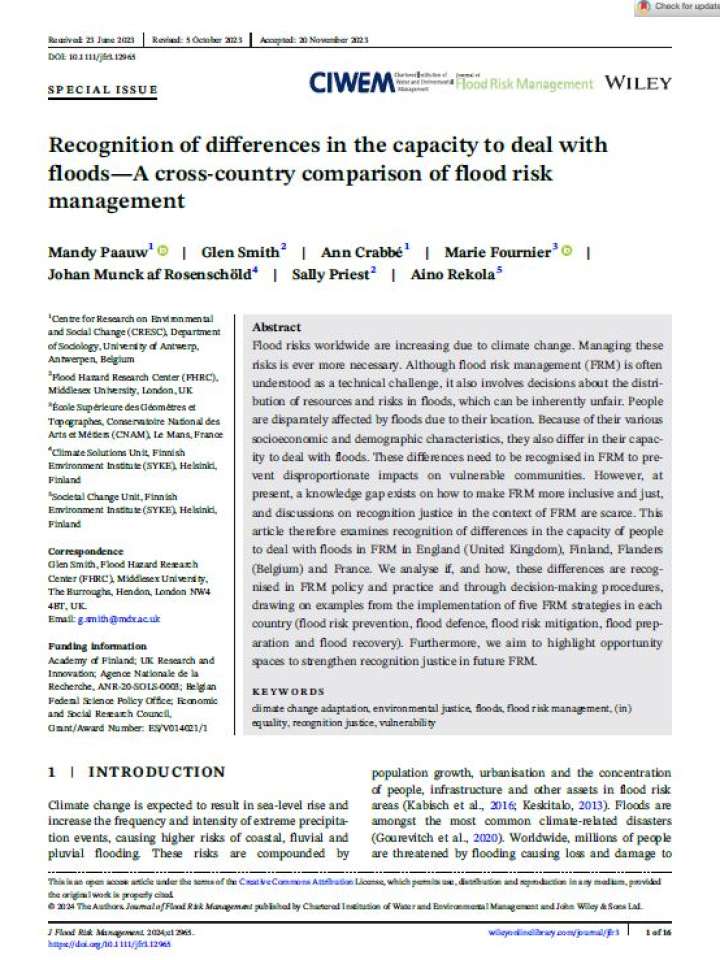Recognition of differences in the capacity to deal with floods—A cross-country comparison of flood risk management
This article examines recognition of differences in the capacity of people to deal with floods in Flood Risk Management (FRM) in England (United Kingdom), Finland, Flanders (Belgium) and France. Flood risks worldwide are increasing due to climate change. Managing these risks is ever more necessary. Although flood risk management (FRM) is often understood as a technical challenge, it also involves decisions about the distribution of resources and risks in floods, which can be inherently unfair.
People are disparately affected by floods due to their location. Because of their various socioeconomic and demographic characteristics, they also differ in their capacity to deal with floods. These differences need to be recognised in FRM to prevent disproportionate impacts on vulnerable communities. However, at present, a knowledge gap exists on how to make FRM more inclusive and just, and discussions on recognition justice in the context of FRM are scarce. We analyse if, and how, these differences are recognised in FRM policy and practice and through decision-making procedures, drawing on examples from the implementation of five FRM strategies in each country (flood risk prevention, flood defence, flood risk mitigation, flood preparation and flood recovery). Furthermore, we aim to highlight opportunity spaces to strengthen recognition justice in future FRM.
Explore further
